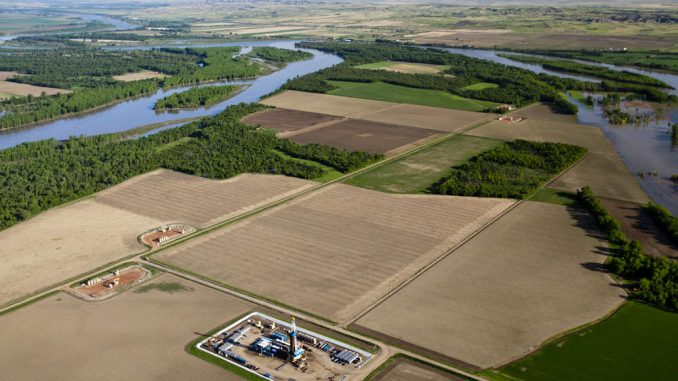
North Dakota among hardest hit by incoming president’s pledge to ban development
A ban on oil and natural gas development on public lands by President-elect Joe Biden would severely harm the economies of eight western states, according to a Wyoming Energy Authority study conducted by University of Wyoming Professor Tim Considine. Over the next four years, the human cost of fulfilling Biden’s campaign pledge would be an average of 72,818 fewer jobs annually. Lost wages would total $19.6 billion, economic activity would decline $43.8 billion, and tax revenues would drop $10.8 billion by the end of Biden’s first term in Alaska, California, Colorado, Montana, New Mexico, North Dakota, Utah, and Wyoming. By 2040, Gross Domestic Product (GDP) would decline by $670.5 billion and average annual job losses would exceed 351,000 across the West.
The following are comments from Western Energy Alliance and the North Dakota Petroleum Council in response to the report.
“President-elect Biden has had to face the reality that he can’t ban fracking nationwide, so he’s pledged to ban leasing and fracking on federal lands. A Biden ban would be devastating to the economies of western states by eliminating thousands of jobs just as Americans are struggling to recover from the pandemic,” said Kathleen Sgamma, president of Western Energy Alliance. “He’s calculating that he won’t pay a political price while satisfying radical climate activists, but he would be sacrificing the livelihoods of thousands of westerners throughout many sectors of the economy. We hope this report convinces him not to inflict economic pain on westerners. If he makes good on a Biden ban, the Alliance will be in court within hours.”
“I cannot underestimate the devastating impacts a federal leasing or fracking ban would have on our industry, private land and mineral owners, and the entire state economy in North Dakota,” said Ron Ness, President of the North Dakota Petroleum Council. “I appreciate the efforts of the Wyoming Energy Authority to measure and outline these impacts so the public and lawmakers can be fully educated on the matter. Although the federal government does not own most surface lands and minerals in North Dakota, the state has a checkerboard of mineral ownership resulting in private, state, tribal, and federal minerals often within the same section or spacing unit. The existence of even the smallest federal mineral interest requires our operators to seek federal permits and approvals. This gives the federal government a lot of control over oil and gas development in North Dakota, even in the absence of broad federal ownership. We have long touted the positive economic impacts provided by our industry that benefit the entire state – not only through tax revenues, but also jobs and secondary economic activity. Efforts to ban federal leasing will not only harm the economy and subsequently the people of North Dakota, it would also restrict private land and mineral owners from exercising their right to develop their property, and we will do everything we can to fight such actions.”
North Dakota, which ranks second in oil production on public lands and fifth in natural gas, would lose $24.7 billion in GDP over the next 20 years. Between 2021 and 2024, a drilling ban would eliminate:
- 3,924 jobs on average each year
- $1.4 billion in oil and natural gas investments
- production valued at $2.4 billion
- $822 million in tax revenue to the state
- $2.9 billion in GDP
- $1.1 billion in wages.
Across the eight states that together provide over 97 percent of federal onshore production, closing off public lands over the next 20 years would result in:
- Average annual job losses reaching 351,555 by years 2036 through 2040
- GDP dropping by $670.5 billion
- Oil and natural gas investment plummeting $389 billion, leading to a loss of $502.6 billion worth of production
- The elimination of $159 billion in state tax revenues and $300 billion in lost wages.
The report entitled, “The Fiscal and Economic Impacts of Federal Onshore Leasing and Drilling Bans,” analyzes the economic impacts of two potential scenarios: a leasing moratorium and a ban on approving drilling permits. The full report is available online.
About Western Energy Alliance
Western Energy Alliance represents 200 companies engaged in all aspects of environmentally responsible exploration and production of oil and natural gas in the West. Alliance members are independents, the majority of which are small businesses with an average of fourteen employees. Learn more at www.WesternEnergyAlliance.org.
About North Dakota Petroleum Council
Since 1952, the Petroleum Council has been the primary voice of the oil and gas industry in North Dakota. The Petroleum Council represents more than 650 companies involved in all aspects of the oil and gas industry, including oil and gas production, refining, pipeline, mineral leasing, consulting, legal work, and oil field service activities in North Dakota, South Dakota, and the Rocky Mountain Region. For more information, go to www.ndoil.org
Spread the word. Support the industry. Share the energy.
If you have a chance, check out The Crude Life Podcast!

